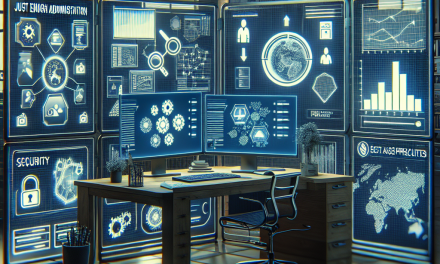In today’s rapidly evolving digital landscape, securing server environments has become a paramount concern for organizations of all sizes. Windows Server Critical Service Isolation (CSI) offers a robust framework for protecting essential services and processes from threats and vulnerabilities. In this article, we will explore the essential concepts behind Critical Service Isolation and its benefits for organizations, particularly in enterprise environments.
What is Critical Service Isolation?
Critical Service Isolation is a feature in Windows Server that enhances the security of critical services running on the operating system. By creating a separate, isolated environment for critical services, Windows Server can reduce the risk posed by malware, configuration errors, and other threats that can compromise service integrity.
Key Features of Critical Service Isolation:
-
Virtualization-Based Security (VBS):
- Critical Service Isolation leverages VBS to create an isolated environment using hardware virtualization. This helps to run key services in a secure enclave, ensuring that they remain protected from unauthorized access and exploitation.
-
Service Isolation:
- It allows for specific services to run in a separate space, limiting their interaction with untrusted code. This prevents potential attackers from leveraging one compromised service to access others.
-
Enhanced Security Policies:
- Administrators can define and enforce policies that dictate how services operate, including restrictions on resource allocation and communication parameters to minimize cross-service vulnerabilities.
Essential Concepts
1. Service Isolation Process:
Critical Service Isolation works by running essential services within a highly constrained container. This makes it difficult for malicious entities to exploit vulnerabilities within these services and lateral movement becomes much harder.
2. Integration with Windows Defender:
By integrating with Windows Defender, Critical Service Isolation enhances security further. It utilizes threat intelligence to monitor and protect services in real-time, ensuring that any anomalies are detected and addressed immediately.
3. Application Compatibility:
Critical Service Isolation is designed to work seamlessly with existing applications and services. Organizations can implement CSI without extensive changes to their current infrastructure, allowing for better UI and UX continuity.
Benefits of Windows Server Critical Service Isolation
Implementing Critical Service Isolation provides numerous advantages for organizations seeking to bolster their server security:
1. Improved Security Posture:
CSI prevents attackers from easily accessing and exploiting critical services. By isolating these services, organizations can significantly reduce the surface area for potential attacks.
2. Reduced Risk of Data Breach:
With critical services isolated, the risk of a data breach decreases. Sensitive data and application functionalities are better safeguarded against unauthorized access.
3. Regulatory Compliance:
Many industries are governed by strict regulations that require robust security measures for critical systems. By implementing CSI, organizations can enhance their compliance posture, reducing the risk of penalties and legal implications.
4. Simplified Threat Management:
The integration of Critical Service Isolation with tools like Windows Defender allows for simpler and more efficient threat management. Automated monitoring and response capabilities ensure that organizations can react swiftly to emerging threats.
5. Operational Resilience:
By isolating critical services, organizations can maintain operational resilience. In the event of a service disruption, isolated components can remain functional, allowing critical operations to continue without significant downtime.
Conclusion
Windows Server Critical Service Isolation is an essential feature that organizations should consider in their broader security strategy. By providing a robust framework for protecting critical services from potential threats, CSI not only enhances an organization’s security posture but also supports compliance and operational resilience. As cyber threats continue to evolve, embracing innovative security features like Critical Service Isolation is vital for safeguarding valuable business assets and ensuring uninterrupted service delivery.
About WafaTech
WafaTech is committed to providing the latest insights and resources for businesses navigating the complexities of technology and security. Stay tuned for more updates, articles, and best practices on how to optimize your IT infrastructure and protect your enterprise.





